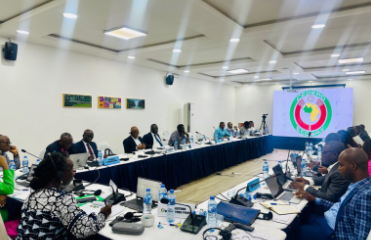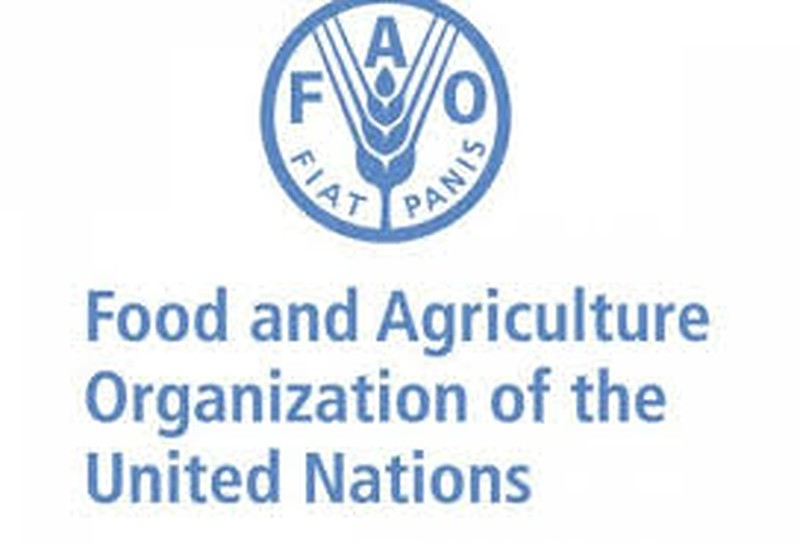Featured
High expectations as African ministers provide AfCFTA with impetus
Published
3 years agoon

By Francisca Emeka- Amaugo
Expectations are high and a new push by African ministers may have just provided the AfCFTA with the much-need impetus. It’s also expected to top the agenda at the African Union Heads of State and Government Summit in Addis Ababa, Ethiopia, early this year.
So far eight countries—Cameroon, Egypt, Ghana, Kenya, Mauritius, Rwanda, Tanzania and Tunisia—are already participating in the AfCFTA’s Guided Trade Initiative (GTI), representing five regions across the continent.
The Guided Trade Initiative (GTI) was launched in Accra, Ghana on 7 October and seeks to allow commercially meaningful trading, and to test the operational, institutional, legal and trade policy environment under the AfCFTA.
“The products earmarked to trade under this initiative include ceramic tiles, batteries, tea, coffee, processed meat products, corn starch, sugar, pasta, glucose syrup, dried fruits, and sisal fiber, among others, in line with the AfCFTA focus on value chain development,” says Secretary-General of the AfCFTA Secretariat, Wamkele Mene.
Overall, the projected $3 trillion borderless market could be instrumental in reversing current trends in poverty, inequality and growth on the continent, and help place Africa on an inclusive and sustainable growth path, says UNCTAD in its 2021 Economic Development in Africa report.
Last November, African ministers meeting in Niger’s capital, Niamey, called for a speedy adoption of proposals to accelerate economic diversification, value addition, and structural transformation, which are prerequisites for trade.
“The AfCFTA was quick on track as it avoided the challenges where nothing is agreed until everything is agreed,” says Erastus Mwencha, the former Deputy chairperson of the African Union Commission (AUC), who was part of the team that played an instrumental role in the creation of the trading bloc.
“The AfCFTA is on track,” Mr. Mwencha says, but adds: “Having a trade agreement is one thing. Political will is quite another. Yet, that’s what the AfCFTA needs most in this nascent stage.”
He explains that with AfCFTA, work started where there have been breakthroughs as negotiations continue in other areas where progress has been slow.
The AfCFTA is on track. But having a trade agreement is one thing and political will is quite another. Yet, that’s what the AfCFTA needs most in this nascent stage.
The agreement establishing the AfCFTA was adopted on 21 March 2018, with 30 May 2019 marking the date of its entry into force. At the time, 24 countries had deposited their instruments of ratification. As of May 2022 there were 54 signatures of which 43 (80%) had deposited their instruments of ratification.
To move it forward, the operational phase of the AfCFTA was launched during the 12th Extraordinary session of the Assembly of the Union on the AfCFTA in Niamey, Niger, 7 July 2019. Proper trading under the AfCFTA Agreement began on 1st January 2021.
Dubbed a game-changer, experts opine the AfCFTA is appropriately designed to deepen integration, foster trade and investment, enhance the mobility of capital and labour, support industrialization, and the development of a dynamic services sector.
“The AfCFTA is a game changer. With the AfCFTA, we are creating a tariff-free continent that can boost intra-African trade and investment, grow local businesses, rev up industrialization and create jobs for the bulging youth population,” said Mr. Mene during an investment partnership forum in New York last September.
AfCFTA, he said, provides Africa a “renewed opportunity to steer its economic relations away from a reliance on external donors, foreign creditors and excessive commodity dependence, ushering in a new economic era focused on self-reliant cooperation, deeper integration and higher levels of intra-African trade”.
Presently, intra Africa trade stands low at just 14.4% of total African exports. UNCTAD forecasts show the AfCFTA could boost intra Africa trade by about 33% and cut the continent’s trade deficit by 51%.
About 34% of households in Africa live below the international poverty line ($1.9 per day), according to UNCTAD. Meanwhile, around 40% of the continent’s total wealth is owned by just a few.
The key question, therefore, as AfCFTA celebrates its 2nd anniversary of commerce remains: How can economic growth through regional integration roll back poverty, cut inequality and foster inclusive development pillars of the AU’s Agenda 2063?
There is now an even split between travel that is visa free, and travel where a visa may be obtained on arrival at the destination country, according to the 2022 Africa Visa Openness Index. The report was released by the AU and the AfDB at the 2022 African Economic Conference (AEC) in Balaclava, Mauritius.
“I think it is a paradox as we know that non-Africans can enter and move across Africa easier than our own fellow Africans,” Lamin Barrow, the head of AfDB in Nigeria, was quoted saying on the sidelines of the conference.
“We are talking about the era of the African continental free trade area. So, all the African countries really should open their borders to Africans,” he said.
Similarly, Africa is home to 12% of the world’s population, yet accounts for less than 1% of the global air service market, according to a 2010 World Bank study on how liberalized air transport would deliver improved air safety, lower fares and increased traffic in Africa.
To unlock the untapped potential, various intra-African non-tariff barriers, including costly non-tariff measures, infrastructure gaps, and market information gaps, need to be successfully addressed. This requires joint efforts under the AfCFTA.
In addition, long-term cooperation in investment and competition policies will be essential. This will help circumvent market dominance by a few players and push back structural and regulatory barriers to market entry.
.
You may like


Trump’s BRICS tariff threat: A double-edged sword for Nigeria’s economy


Nigeria celebrates South Africa’s 31st Freedom Day, lauds Anti-Apartheid support


Senegal urges ECOWAS States to boost foreign investment measures


Nigeria’s manufacturing sector and faulty growth target


AfCFTA, unique opportunity to consolidate Africa’s large market – Osinbajo


FAO advocates inclusion of women traders in AfCFTA
Trending

 Health6 days ago
Health6 days agoDeclassified CIA memo explored concealing mind-control drugs in vaccines

 Entertainment1 week ago
Entertainment1 week agoSimi addresses resurfaced 2012 tweets amid online backlash

 Crime6 days ago
Crime6 days agoSenior police officers faces retirement after Disu’s appointment as acting IGP

 Education1 week ago
Education1 week agoPeter Obi urges JAMB to address registration challenges ahead of exams

 Health1 week ago
Health1 week agoNAFDAC issues alert on suspected revalidated SMA Gold infant formula

 Comments and Issues7 days ago
Comments and Issues7 days ago20 Critical Fixes to Save Nigeria’s Democracy from Electoral Fraud

 Football1 week ago
Football1 week agoMartínez ruled out of Everton clash with calf injury

 Latest7 days ago
Latest7 days agoICPC yet to respond to El-Rufai’s bail request as arraignment date looms

